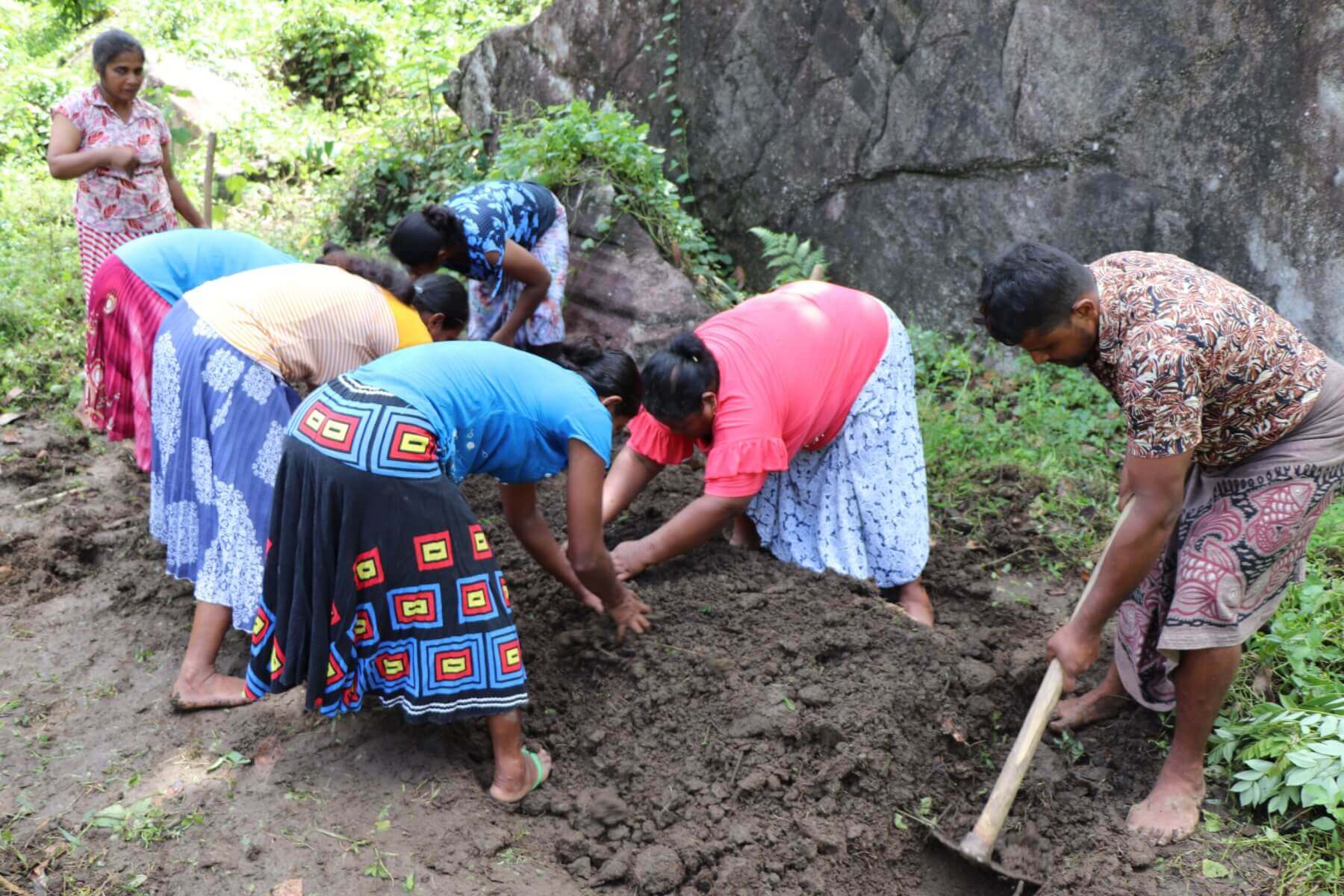Role of Cooperatives and Community Initiatives in Promoting Organic Agriculture in Sri Lanka
Organic agriculture has gained significant momentum in recent years as an environmentally sustainable and health-conscious alternative to conventional farming practices. In Sri Lanka, a country with a rich agricultural heritage, the promotion of organic farming is not just a trend but a necessity for environmental conservation, economic resilience, and public health. Central to this movement are cooperatives and community-led initiatives, particularly those led by women, which play a pivotal role in advancing organic agriculture across the island.
Organic agriculture is gaining increasing importance in Sri Lanka, particularly in response to the global shift towards sustainable farming and the preservation of natural ecosystems. Agroecology—an integrated approach that applies ecological principles to farming—is at the heart of organic agriculture. It emphasizes biodiversity, soil health, and the minimal use of synthetic inputs, making it essential for maintaining the long-term sustainability of farming ecosystems. In Sri Lanka, cooperatives and community-based initiatives play a crucial role in promoting agro-organic agriculture by empowering farmers, facilitating knowledge sharing, and providing access to markets.
The Importance of Organic Agriculture in Sri Lanka
Organic agriculture is increasingly seen as a solution to many of the challenges faced by the agricultural sector in Sri Lanka. The over-reliance on chemical fertilizers and pesticides in conventional farming has led to soil degradation, water contamination, and negative health impacts on both farmers and consumers. Additionally, the global demand for organic products has opened new market opportunities for Sri Lankan farmers, offering higher profit margins and access to international markets.
The Sri Lankan government has recognized the importance of organic farming, with initiatives such as the « Vistas of Prosperity and Splendour » policy framework aiming to promote sustainable agricultural practices. However, the success of these initiatives often depends on the active participation and leadership of local communities, particularly through cooperatives and community-based organizations.
Importance of Agroecology
Agroecology in Sri Lanka promotes a sustainable farming model that goes beyond organic certification to focus on long-term ecological health. It encourages biodiversity by promoting mixed cropping and the use of indigenous seeds, which are better suited to local climates and more resilient to pests and diseases. Furthermore, agroecology helps preserve the health of the soil through natural methods such as crop rotation, composting, and green manuring. Healthy soils, rich in organic matter, not only increase productivity but also enhance the farm’s capacity to absorb carbon, contributing to climate change mitigation.
Given Sri Lanka’s vulnerability to climate change, particularly through changing rainfall patterns, droughts, and floods, agroecology is a crucial strategy for building climate-resilient farming systems. Agroecological practices minimize dependency on external inputs such as synthetic fertilizers and pesticides, which not only degrade the environment but also trap farmers in cycles of debt. By adopting organic and agroecological principles, farmers can restore ecological balance, reduce their environmental footprint, and improve the long-term viability of their livelihoods.
The Role of Cooperatives in Promoting Organic Agriculture
Cooperatives have long been a vital part of Sri Lanka’s agricultural sector, providing small-scale farmers with the resources and support needed to compete in a challenging market. In the context of organic agriculture, cooperatives are instrumental in several ways:
- Knowledge Sharing and Capacity Building: One of the key challenges in transitioning to organic farming is the lack of knowledge and expertise among farmers. Cooperatives serve as platforms for knowledge sharing and capacity building, offering training programs, workshops, and access to expert advice on organic farming techniques. By pooling resources, cooperatives can provide farmers with the necessary skills to adopt organic practices, such as crop rotation, composting, and natural pest control.

A training session to agroecology © MONLAR
- Access to Organic Inputs: Access to organic inputs, such as organic seeds, fertilizers, and bio-pesticides, is crucial for the success of organic farming. Cooperatives play a significant role in sourcing and distributing these inputs to their members, often at reduced costs due to bulk purchasing. This collective approach not only makes organic farming more accessible to small-scale farmers but also ensures the quality and consistency of organic products.

Seeds should not be privatized by companies; indigenous seeds provide good yields and can be re-used year after year. Food security starts at the seeds. © MONLAR
- Market Access and Fair Pricing: One of the main advantages of cooperatives is their ability to negotiate better prices for their members by collectively marketing their products. In the organic sector, this is particularly important as organic products often command higher prices in the market. Cooperatives help farmers access lucrative local and international markets, ensuring that they receive fair compensation for their efforts. This economic incentive encourages more farmers to transition to organic farming.
- Advocacy and Policy Influence: Cooperatives also play a crucial role in advocating for policies that support organic agriculture. By representing the collective interests of their members, cooperatives can influence government policies, such as subsidies for organic inputs, certification processes, and research funding. Their advocacy efforts help create a more favorable environment for organic farming in Sri Lanka.
Women-Led Initiatives in Organic Agriculture
In Sri Lanka, women have traditionally played a central role in agriculture, particularly in tasks such as planting, weeding, and harvesting. However, their contributions have often been undervalued and underrepresented in decision-making processes. In recent years, women-led initiatives have emerged as powerful drivers of change in the organic agriculture movement, particularly in rural areas.
1. Empowering Women Farmers: Women-led cooperatives and community initiatives provide a platform for women farmers to take on leadership roles and actively participate in the decision-making process. These initiatives empower women by offering them access to training, resources, and markets, enabling them to transition to organic farming and improve their livelihoods. Empowered women, in turn, become role models and advocates for organic farming within their communities.

During the training session related to the empowering 100 women in Badulla District © Renaissance Sri Lanka and Women Development Center
2. Promoting Sustainable Practices: Women are often more attuned to the long-term sustainability of farming practices, given their roles in managing household resources and caring for the well-being of their families. Women-led initiatives in organic agriculture emphasize sustainable practices that protect the environment and preserve resources for future generations. These initiatives often focus on integrated farming systems that combine crop cultivation with livestock rearing, agroforestry, and water conservation, creating resilient and diversified farming systems.

A training session on various farming systems © MONLAR
3. Enhancing Food Security and Nutrition: Women-led organic farming initiatives have a direct impact on food security and nutrition in rural communities. By promoting the cultivation of diverse, nutrient-rich crops without the use of harmful chemicals, these initiatives contribute to healthier diets for farming families and the broader community. Women’s involvement in organic farming also ensures that the benefits of organic produce, such as higher nutritional value and reduced health risks, are more widely accessible.
Case Studies of Successful Cooperatives and Community Initiatives
Several successful cooperatives and community-led initiatives in Sri Lanka serve as inspiring examples of the impact of grassroots efforts in promoting organic agriculture.
- The Sri Lanka Women’s Cooperative Society: The Sri Lanka Women’s Cooperative Society has been a pioneer in empowering women farmers to adopt organic farming practices. Through its network of women’s groups across the country, the cooperative provides training, resources, and market access to women engaged in organic agriculture. The cooperative has successfully linked its members with organic certification bodies and international buyers, enabling them to export their produce and earn higher incomes.
- The Kurunegala Organic Farmers’ Cooperative: Located in the North-Western Province, the Kurunegala Organic Farmers’ Cooperative is a shining example of how cooperatives can transform local agriculture. The cooperative provides its members with access to organic inputs, technical support, and marketing services. It has also established a processing facility for organic produce, adding value to the products and creating additional income streams for its members. The cooperative’s success has inspired other farmer groups in the region to adopt organic farming.
- Community-Led Initiatives in the Badulla District – The Badulla District, women-led community initiatives have played a crucial role in promoting organic agriculture. These initiatives focus on teaching preservation techniques, creating cooperatives for selling dry food, and implementing sustainable farming practices. By working together, these communities have been able to improve their food security, enhance their incomes, and protect their natural resources.
Challenges and Opportunities
While cooperatives and community initiatives have made significant strides in promoting agro- organic agriculture in Sri Lanka, challenges remain. These include limited access to organic inputs, high certification costs, and the need for more government support. However, the growing consumer demand for organic products and the increasing recognition of the importance of sustainable farming practices present significant opportunities for further growth.
Many farmers are still hesitant to transition to organic agriculture because of the initial costs and risks involved in shifting from chemical-based farming. Furthermore, the demand for organic products is growing but remains niche in Sri Lanka. Support from the government, non-governmental organizations, and other relevant stakeholders is essential to scale up agro-organic agriculture through incentives, training, and policy support.
To fully realize the potential of agroecology in Sri Lanka, greater coordination between cooperatives, community initiatives, and government programs is required. Financial support, research, and development into organic farming methods, along with increased consumer awareness, are needed to boost the adoption of sustainable farming practices.
Renaissance Sri Lanka’s Contribution
Renaissance Sri Lanka (RSL) has been at the forefront of initiatives aimed at empowering women and fostering sustainable agro-agricultural practices in Sri Lanka. One of its most impactful projects was recently completed in the Badulla district, where the focus was on empowering women through preservation techniques (Read More). This project not only uplifted women in the region but also supported agroecological farming practices
A key component of the Badulla project was the creation of a cooperative. This cooperative was a significant milestone in promoting agroecological products and ensuring the initiative’s long-term sustainability. The cooperative serves as a platform for women to collaborate, pool resources, and collectively market their dry food products, which are produced using sustainable, organic methods.
This cooperative plays an essential role in supporting both women’s economic empowerment and the promotion of agroecological products. The cooperative provides members with access to shared equipment, storage facilities, and distribution channels that would be difficult to access individually. By working together, the women can produce larger quantities of goods and access better market opportunities, both locally and internationally.
The cooperative also emphasizes the importance of agroecology—farming practices that prioritize ecological balance and sustainability. By incorporating agroecological methods into their dry food production, the cooperative helps promote environmentally friendly practices that benefit the community and the planet. Agro -organic farming methods, such as crop rotation, natural pest control, and composting, are emphasized in the training programs offered by the cooperative, aligning with the principles of agroecology.
Conclusion
Cooperatives and community-led initiatives, particularly those led by women, are at the forefront of promoting organic agriculture in Sri Lanka. Their efforts have not only contributed to the growth of the organic sector but have also empowered rural communities, improved food security, and protected the environment. As the organic agriculture movement continues to gain momentum, the role of these grassroots movements will be crucial in shaping a sustainable and resilient agricultural future for Sri Lanka.
References
Bandara, B. H. W. M. U., & Wickramasinghe, H. M. T. G. (2020). Organic Agriculture in Sri Lanka: A Review. International Journal of Environmental Science and Development, 11(3), 103-107.
Herath, H. M. L. K., & Weersink, A. (2009). Organic Farming in Sri Lanka: Problems and Prospects. Agricultural Economics Research Review, 22, 401-410.
Wijeratne, M. (2016). The Role of Cooperatives in Enhancing the Competitiveness of the Organic Agriculture Sector in Sri Lanka. Journal of Cooperative Studies, 49(1), 7-16.
Karunarathna, D., & Ariyawardana, A. (2022). Women’s Empowerment in Organic Agriculture: Case Studies from Sri Lanka. Asian Journal of Agricultural Research, 16(3), 126-135.




